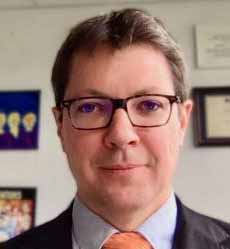- Keynote Speaker -

Prof. Eduard Axel Jorswieck
Technische Universitaet Braunschweig, GermanySpeech Title: Transceiver and Resource Optimization in Wireless Communications: from 3G to 6G
Abstract: The efficient design of transmitter and receiver operations as well as efficient usage of resources in wireless communications is based on optimisation models and algorithms. In fact, every new generation of mobile communications requires a close-to-optimal solution of certain programming problems in order to select the suitable technologies and their best configurations. In the early wireless systems, resource allocation could be performed based on linear and convex programming since orthogonal multiple access schemes and homogeneous objectives were applied. With multi-carrier and multiple antenna technologies and throughput maximisation, the triumph of convex optimisation began. When other performance metrics, such as energy efficiency, became relevant, quasi- and pseudo-convex, fractional programming methods were successfully applied. Popular non-orthogonal access methods and the goal of higher resource efficiency led to more general non-convex and general global programming problems. Therefore, global programming approaches such as mixed monotonic programming with branch-and-bound methods are recently developed. Currently, heterogeneous wireless system designs are envisioned for 6G wireless, with flexible open radio network architectures. Here we leave classical optimisation methods and proceed towards machine learning approaches. The keynote will lead through these developments and illustrate two recent system designs for 6G wireless networks, one based on global programming and one based on machine learning.
Biography: Eduard Axel Jorswieck is the managing director of the Institute of Communications Technology, the head of the Chair for Communications Systems and Full Professor at Technische Universitaet Braunschweig, Germany. He received the Dipl.-Ing. degree in Computer Engineering and the PhD degree in Electrical Engineering both from TU Berlin in 2000 and 2004, respectively. His main research interests are in the broad area of communications, signal processing, and applied information theory. He is IEEE fellow, and Editor-in-Chief of the EURASIP Journal on Wireless Communications and Networking. He has won several awards, including IEEE Signal Processing Society Best Paper and other conference best papers and best student papers.
